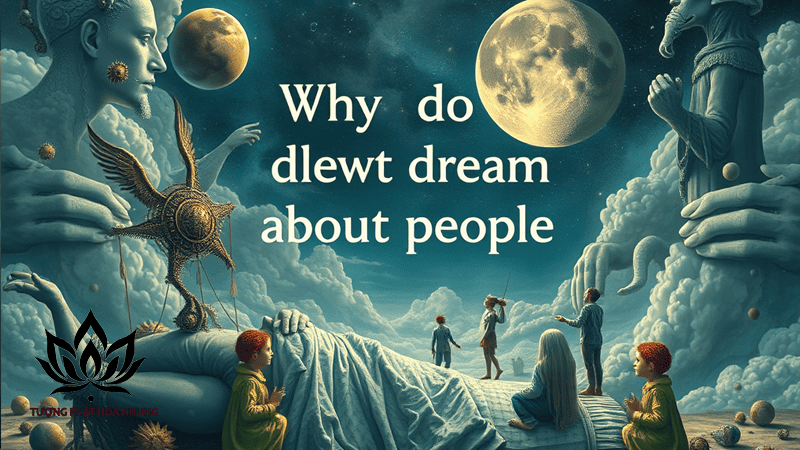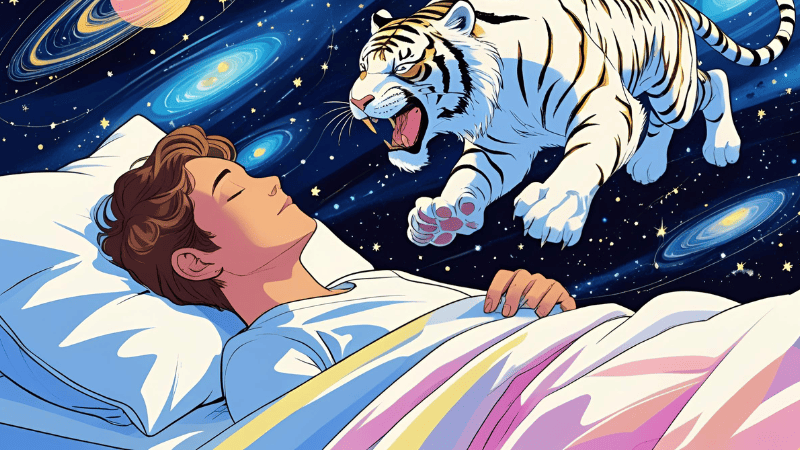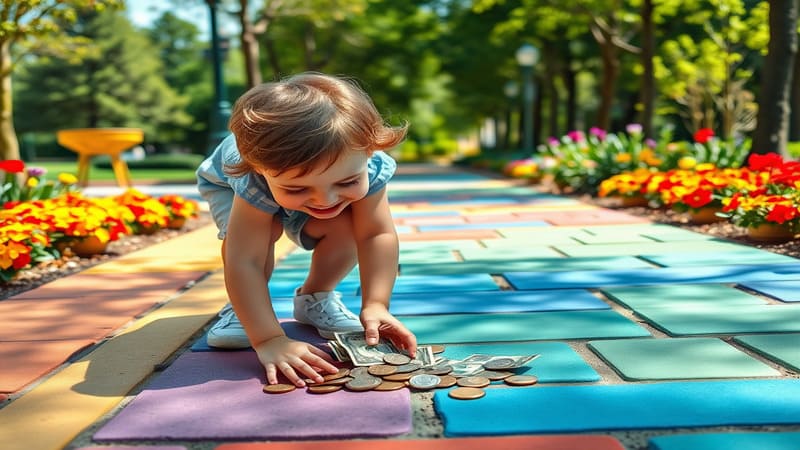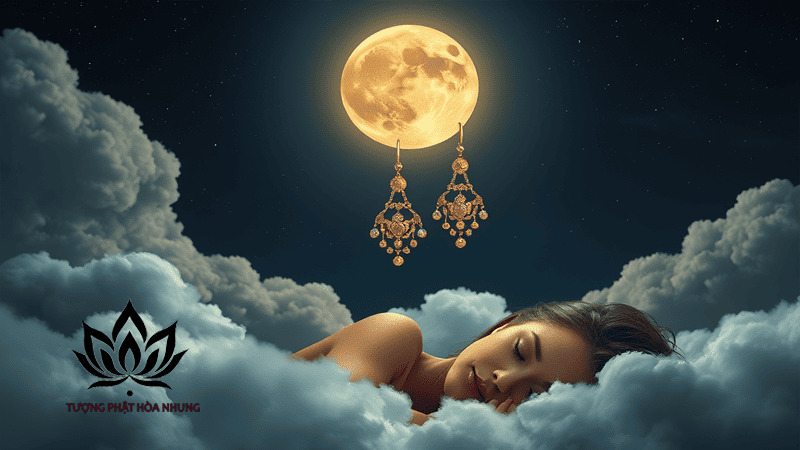Dreams have fascinated humanity since the dawn of consciousness. From ancient civilizations interpreting dreams as messages from the gods to modern neuroscience exploring them as a byproduct of brain activity, one thing remains constant: we often dream about people—friends, family, strangers, celebrities, even people we’ve lost. But why do we dream about people? What does it mean when someone appears in your dream? Is it random, or is there a hidden message your subconscious is trying to tell you? This article explores the science, psychology, cultural interpretations, and symbolic meanings of dreaming about people, helping you understand what your mind may be processing while you sleep.

The Science Behind Dreaming
Before diving into why specific people appear in our dreams, we need to understand what dreams are from a scientific perspective.
Dreams occur mostly during the REM (Rapid Eye Movement) stage of sleep. This is when brain activity is nearly as high as when you’re awake. According to sleep scientists, dreams serve various functions:
- Memory consolidation: Your brain stores and organizes recent experiences.
- Emotional processing: Dreams help regulate emotional responses and process feelings.
- Cognitive rehearsal: You practice scenarios or problems to find resolutions.
- Sensory integration: You reinterpret real-world stimuli (sounds, sensations) into dream elements.
The people who appear in our dreams often represent either:
- Actual individuals we’ve encountered recently or long ago,
- Symbolic representations of emotional states,
- Or amalgamations of multiple people we’ve known.

Common Types of People in Dreams — And Their Possible Meanings
a. Family Members
Dreams involving parents, siblings, or children often relate to our core values, early life experiences, or unresolved emotions. For example:
- Dreaming of your mother may symbolize nurturing, safety, or even control depending on your relationship.
- A sibling may represent rivalry, competition, or solidarity.
- A child—especially your own—often symbolizes responsibility, anxiety, or hope.
b. Romantic Partners (Current or Ex)
Dreaming about a partner or ex may trigger strong emotions. These dreams can mean:
- A reflection of your current emotional needs or fears.
- Unresolved feelings or unfinished business with the ex.
- Desire for intimacy, connection, or closure.
Importantly, it doesn’t always mean you want to get back together. The ex may just symbolize a certain period or lesson in your life.
c. Friends
Friends in dreams usually indicate support systems, emotional bonds, or traits you admire or reject in yourself. For example:
- A loyal friend may represent trustworthiness.
- A toxic friend may highlight areas where you feel betrayed or need boundaries.
d. Strangers
Dreaming of unknown people is more common than you think. These figures often reflect parts of your own personality you’re unaware of. Jungian psychologists call this the “shadow self.”
e. People Who Have Passed Away
These dreams can be intensely emotional. Some possible interpretations:
- You’re seeking comfort or closure.
- You’re processing grief or loss.
- The person represents something you associate with them—like wisdom, fear, or regret.

Psychological Theories: Why People Appear in Dreams
a. Freudian Theory
Sigmund Freud believed dreams were a form of wish fulfillment. People in your dreams might represent repressed desires or unresolved Oedipal conflicts. A parent could symbolize authority or protection, while an ex could be a projection of sexual longing.
b. Carl Jung’s Archetypes
Jung took a more symbolic view, suggesting that dream figures are archetypes—universal symbols. According to him:
- A wise old man might represent your inner knowledge.
- A seductive woman may represent temptation.
- A child may symbolize vulnerability or potential.
Dream characters are mirrors of your own psyche rather than literal representations.
c. Contemporary Cognitive Psychology
Today’s psychologists view dreams more as mental simulations that:
- Help us rehearse social interactions.
- Strengthen memories and emotional regulation.
- Reflect the themes that dominate our waking lives.
Hence, if you’re anxious about a presentation, you may dream about a teacher or boss.
Cultural and Spiritual Interpretations
In many cultures, dreaming about people is seen as significant:
a. Eastern Traditions
- Chinese Dream Culture: Dreaming about someone may indicate their energy is “visiting” you, or that there’s unresolved karma.
- Hinduism and Buddhism: The presence of a person in a dream might relate to past lives or karmic ties.
b. Western Mysticism
- Dreaming of a loved one who passed away may be interpreted as a spiritual visit or message from the afterlife.
- Dreaming about an enemy may mean you’re subconsciously trying to forgive or let go.
c. African and Indigenous Beliefs
Some tribes believe that ancestors use dreams to communicate guidance or warnings, and that every person in the dream has a role, whether it be protector, messenger, or trickster.
Situational Triggers: Why You Might Dream About Someone
Let’s look at some real-life scenarios that explain why a particular person might show up in your dreams:
1. Recent Interaction or Memory
Even a brief conversation or social media post can trigger a dream. The brain processes recent information during sleep and uses it in dreams.
Example: You see an old friend’s photo on Facebook. That night, you dream of a school reunion.
2. Unresolved Emotions
Dreaming about someone you had a fight with? That person might symbolize emotional closure or the inner conflict still lingering in your mind.
Ask yourself: Am I still angry, hurt, or confused?
3. Longing and Unmet Needs
Dreams about crushes or distant partners may point to loneliness or unmet desires. But remember, the person may simply be a symbol, not a message to call them at 3 a.m.
4. Subconscious Associations
Sometimes the person in your dream represents an idea or trait—like strength, fear, or creativity. Your boss may appear not because you’re obsessed with them, but because they symbolize pressure or authority.
What Should You Do After Dreaming About Someone?
Here’s a framework to reflect on your dream:
Step 1: Write It Down
Keep a dream journal. Write who appeared, what happened, and how you felt.
Step 2: Analyze the Emotion
Was the dream comforting, scary, sad, or confusing? The emotion often holds the key.
Step 3: Ask the Right Questions
- What does this person mean to me?
- How did they make me feel in the dream?
- Could they symbolize something I’m experiencing?
Step 4: Look for Patterns
Do they keep appearing in your dreams? Is there a recurring theme (loss, fear, love, confrontation)? Your subconscious may be urging you to resolve something.
Can You Control Who You Dream About?
To some extent, yes. The technique is called lucid dreaming—being aware you’re dreaming and possibly influencing the content.
Tips to guide your dreams:
- Think about the person before sleeping.
- Meditate or visualize a scenario involving them.
- Keep your sleep routine consistent.
However, dreaming is largely subconscious, so control is never guaranteed.
Conclusion: What Does It Mean When We Dream About People?
There’s no one-size-fits-all answer. Dreaming about people could mean:
- You’re processing memories.
- You’re working through emotions.
- You’re exploring parts of your identity.
- Or… your brain is just firing off random synapses.
But the most meaningful interpretation is the one that resonates with your life context. If someone appears in your dream, they may be holding a mirror to something deeper inside you.
Xem thêm: Tượng Phật giá rẻ uy tín chỉ có tại Tượng Phật Hòa Nhung.








